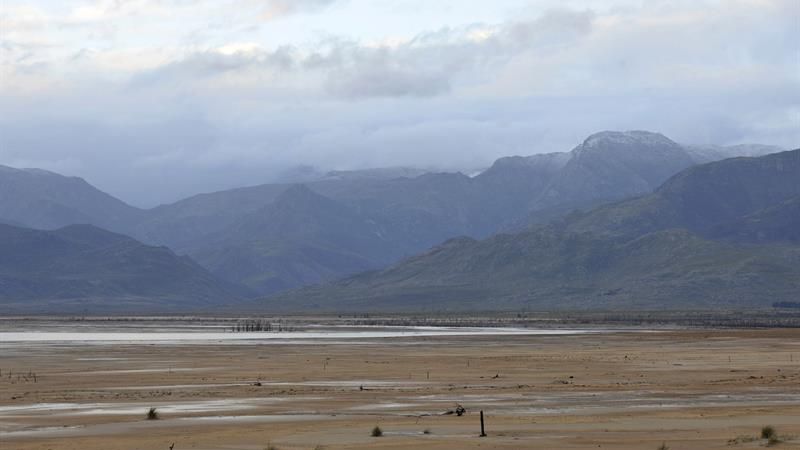While Cape Town’s southern suburbs and Cape Flats have been experiencing a mini Day Zero since Monday, the City today released its latest dam report.
Overall dam levels are down by just 0.4% this week, falling from 24.4% to the nice round figure of 24%. Since 29 January, dam levels have fallen by just 2.3%.
No ad to show here.
The lower decline this week is due to a number of factors.
Last week saw a number of rain days recorded across the City’s weather stations, including at the Theewaterskloof Dam and Steenbras catchment area.
The Theewaterskloof itself fell by just 0.2% over the previous week, and currently holds 11.1% of its designed capacity. The Department of Water and Sanitation continues to “shrink” the dam however, which will ensure the final 10% can be accessed.
Meanwhile, the Voëlvlei Dam is now just 16% full, falling 5.8% since the beginning of the year.
The DWS’s other large dam on the Berg River saw its largest dip this month, falling from 53.5% to 52.4%. It’s also this week’s biggest loser.
As far as the smaller dams on the Western Cape Water Supply System go, the Steenbras duo are enjoying mixed fortunes. While the Upper Dam is likely still benefiting from the Eikenhof Dam’s water, the Lower Dam continues to drop.
Cape Town’s dams fell by just 0.4% over the previous week
The Upper Dam has added more than 8% to its storage levels in the past two weeks, and is now just 9% off the 100% mark. The Lower Dam however has dropped by a further 1.9%, and is now 37.1% full.
And finally, the Wemmershoek Dam is now just 46.1% full, after falling more than 6% since 29 January.
Water consumption from the Big Six dams continues to edge below the 500-million litres per day mark, but overall consumption remains above the 510-million threshold.
As of 22 February, agriculture claimed a 19% share of the consumption from the major dams. That equates to around 95-million litres per day. The City of Cape Town (73%) and “other urban” areas (8%) consume the remainder.
There’s no word yet from the City whether Day Zero is set to move from its current date of 9 July 2018.
Feature image and graph data: City of Cape Town
